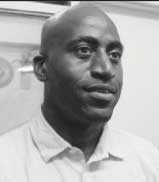
ONE may expect difficult problems to have equally difficult and expensive solutions. Imagined or ignored problems, however, are in a class of their own.
Let’s compare two problems. First, a global problem. According to the US EPA, plastic is such a durable product that every bit of it ever made still exists. Further, 8 million tonnes of plastic enters the oceans each year, and the UN predicts that by 2050, there will be more plastic in the sea than fish. Within one generation, fishing will have declined.
Now for a local problem. Within Castries, high volumes of traffic flow every day from Manoel Street onto Jeremie Street, then onto the Waterfront or even Chaussee Road. These high traffic links all suffer when pedestrians cross the road on Jeremie Street near La Place Carenage.
The problem is that individual pedestrians may cross the street and contribute to the traffic backlog. Worse, the delay is indefinite, because other pedestrians may suddenly appear then cross the road, and impose additional cumulative delays. Over the past month, I ran two non-scientific tests by using that length of road. In both cases, it took over 10 minutes to travel from the Castries Market to La Toc Road.
If we consider the impact on business, commerce, appointments and the economy, then we might be inclined to do something in response. If we average the daily wage of the country using our latest GDP figures, we can then place a cost on the delays experienced by the motorists using such a slow link. Furthermore, the impact of cruise ships and uncontrolled pedestrian crossings can be more meaningfully measured against the supposed benefit.
The lack of fairness to motorists using that road should be easily recognised and evenly measured! Pedestrians are no safer, either, because traffic fumes in cities can be so bad that they cancel out the benefits of exercise. Therefore, better traffic flow can improve our health and the economy!
How may we solve that problem? Computers use a technique called buffering to avoid delays when streaming videos. Basically, a portion of the file is collected before it starts to play. Delays in fetching more of the video would then be invisible to the user. Similarly, if pedestrian traffic was buffered by introducing a system of lights at busy crossings, then more traffic would flow and we might all enjoy the benefits. Are we likewise prepared to act locally to solve everyday problems?
To share your views, contact the author at www.datashore.net or via The VOICE.
(About the Author: Dr. Lyndell St. Ville is an ICT Consultant offering expertise in data management, systems design and analysis.)






